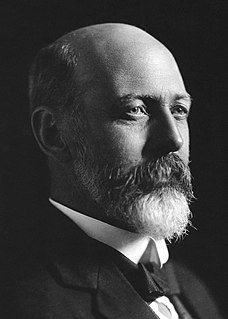A Quote by Marcus Tullius Cicero
I will go further, and assert that nature without culture can often do more to deserve praise than culture without nature.
Related Quotes
Science ... has no consideration for ultimate purposes, any more than Nature has, but just as the latter occasionally achieves things of the greatest suitableness without intending to do so, so also true science, as the imitator of nature in ideas, will occasionally and in many ways further the usefulness and welfare of man,-but also without intending to do so.
Sex is probably one of the last forms of human expression to enjoy such a direct connection with nature. It might be the primary site of conflict between nature and culture. If one assumes that nature (or instinct) is repressed in a highly civilised society, then I think the conceptual dyad nature-culture is best preserved there, in the realm of sex.
Without culture there can be no growth; without exertion, no acquisition; without friction, no polish; without labor, no knowledge; without action, no progress; and without conflict, no victory. The man who lies down a fool at night, hoping that he will waken wise in the morning, will rise up in the morning as he laid down in the evening.
A free culture is not a culture without property; it is not a culture in which artists don't get paid. A culture without property, or in which creators can't get paid, is anarchy, not freedom. Anarchy is not what I advance here. Instead, the free culture that I defend in this book is a balance between anarchy and control.
Why should anyone be afraid of change? What can take place without it? What can be more pleasing or more suitable to universal nature? Can you take your bath without the firewood undergoing a change? Can you eat without the food undergoing a change? And can anything useful be done without change? Don't you see that for you to change is just the same, and is equally necessary for universal nature?
Science starts with preconception, with the common culture, and with common sense. It moves on to observation, is marked by the discovery of paradox, and is then concerned with the correction of preconception. It moves then to use these corrections for the designing of further observation and for more refined experiment. And as it moves along this course the nature of the evidence and experience that nourish it becomes more and more unfamiliar; it is not just the language that is strange [to common culture].











































